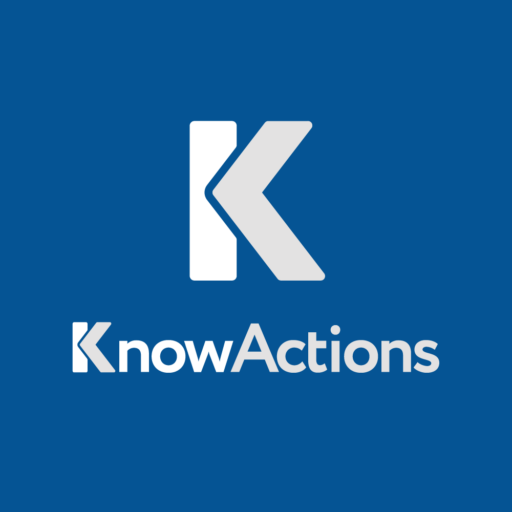Did you know that only 49% of leaders are seen as truly accountable? This fact comes from a global survey of senior executives1. It shows the pressing need for better leadership accountability in today’s workplace. In a time where team responsibility and shared ownership are key, understanding accountability’s impact on team performance is vital.
Accountability in teams means more than just being responsible. It’s about building a culture where everyone owns their actions and results. When leaders create such an environment, they increase productivity and achieve better results. This significantly helps the team succeed2.
Teams with accountable leaders perform better in tough times and can draw and keep top talent1. This shows the crucial role of leadership in building a responsible culture and sustaining high performance.
Creating a culture of accountability is more than setting standards. It’s about seeing mistakes as chances for growth, not failures. This mindset encourages innovation and lets team members take risks. It leads to better problem-solving skills and higher engagement2.
Key Takeaways
- Less than half of organizational leaders are seen as truly accountable
- Accountability boosts productivity and yields better outcomes
- Accountable leadership attracts and retains top talent
- A culture of accountability enhances employee satisfaction and retention
- Viewing mistakes as growth opportunities fosters innovation
- Clear communication and emotional intelligence are crucial for accountability
Understanding Leadership Accountability
Leadership accountability is key to an organization’s success. It means leaders are responsible for their actions, decisions, and how their teams perform. They understand that accountability leads to success and builds trust and productivity within the team.
Defining Accountability in Leadership
Leaders are accountable for the outcomes of their business, the culture they create, and the well-being of their workforce. Those who embrace accountability show commitment to both their business and their people. They build trust through clear communication and aligning goals. Research indicates that accountable leaders tend to outperform others, underscoring its significance3.
The Role of Leaders in Fostering Accountability
Leaders are vital in promoting accountability in their teams. They set clear expectations, align goals, and use performance tracking systems. This creates an environment where team members know their roles and strive to fulfill them. Executives are now prioritizing leadership accountability and building teams that are accountable4.
Balancing Accountability and Empathy
Effective leaders balance accountability with empathy. They set high standards but avoid micromanaging, creating an open environment. Teams value leaders who empower them and encourage collaboration3. This approach boosts employee engagement and team performance. Effective Communication is crucial, ensuring clear expectations in a supportive setting.
Leadership accountability is essential for team success. By setting clear expectations, promoting a culture of responsibility, and balancing accountability with empathy, leaders can lead high-performing teams that consistently meet their goals.
The Importance of Accountability in Leadership
Accountability in leadership is essential for an organization’s success. It ensures teams stay focused on the strategy and promotes a culture of excellence. Leaders who value accountability build an environment where trust flourishes and performance improves5.
Research indicates that 72% of leaders recognize accountability as vital for success, yet only 31% are content with their current accountability levels. This disparity underscores the necessity for enhanced leadership strategies5.

Effective leaders leverage Constructive Feedback to spur growth and development. They realize that accountability is intertwined with empathy, leading to a well-rounded leadership approach. This equilibrium is crucial for assembling high-performing teams and cultivating trust6.
Organizations with robust leadership accountability tend to be healthier. Employees in such environments experience less stress, higher productivity, and lower burnout. Moreover, they are 2.5 times more likely to be engaged when their managers hold them accountable65.
Adopting Empowerment Strategies, like Objectives and Key Results (OKRs), enhances leadership accountability. These frameworks offer structure, transparency, and facilitate open dialogue, ensuring teams are aligned with organizational objectives6.
By emphasizing accountability, leaders can set off a positive chain reaction within their organization, propelling success and nurturing a culture of responsibility and excellence.
Challenges of Implementing Accountability
Implementing accountability in the workplace is a complex task. Leaders often face resistance and obstacles when trying to foster a culture of responsibility. Let’s explore some key challenges and strategies to overcome them.
Overcoming Resistance to Change
One major hurdle in implementing accountability is resistance to change. Employees may feel threatened by new expectations or fear increased scrutiny. A lack of leadership accountability, employee accountability, and peer accountability are three main reasons why accountability at work is challenging7. To address this, leaders should involve team members in goal-setting and provide clear communication about the benefits of accountability.
Avoiding Micromanagement
When implementing accountability measures, leaders must strike a balance between oversight and autonomy. Micromanagement can stifle creativity and demotivate employees. Instead, focus on creating a framework for independent problem-solving and consistently monitoring progress without excessive interference7. This approach promotes Team Responsibility while avoiding the pitfalls of over-control.
Setting Clear and Achievable Goals
Unclear roles, responsibilities, and unrealistic goals often contribute to a lack of accountability8. To combat this, leaders should work with their teams to establish clear expectations and define roles. Collaboration Techniques such as joint goal-setting sessions can help ensure that objectives are both clear and achievable.
Effective Performance Tracking is crucial for maintaining accountability. Leaders should implement measurable success metrics and regularly assess progress8. This approach allows for timely interventions and adjustments, ensuring that accountability measures remain effective and relevant.
| Challenge | Strategy |
|---|---|
| Resistance to Change | Involve employees in goal-setting |
| Micromanagement | Create frameworks for independent problem-solving |
| Unclear Goals | Establish clear expectations and define roles |
| Ineffective Tracking | Implement measurable success metrics |
By addressing these challenges head-on, leaders can create a more accountable work environment. Remember, fostering accountability should be a collaborative effort, with everyone in the organization holding themselves and others responsible for their goals7.
Accountability in Teams: Building a Culture of Responsibility
Creating a culture of responsibility within teams is essential for success. It’s built on shared ownership, effective communication, and trust. Studies indicate that accountable teams are 50% more likely to meet or surpass performance goals9.
Leaders are crucial in promoting accountability. By establishing clear goals and expectations, they can boost team alignment by 25% towards shared objectives10. Regular check-ins also play a part, increasing accountability by 40% and ensuring steady progress tracking10.
Effective communication is vital for trust and collaboration. Encouraging open, honest dialogue creates a supportive atmosphere. Offering channels for anonymous feedback can raise the chance of team members expressing concerns by 60%10.
Recognition and rewards are key to reinforcing accountability. Organizations with strong recognition programs see a 31% drop in voluntary turnover rates9. Celebrating small wins and acknowledging accountability can lift team morale by 30%10.
Leading by example has a profound impact on team accountability. When leaders own up to mistakes and correct them, trust levels can jump by 45%10. This fosters a culture where individuals feel empowered to take responsibility for their actions.
By adopting these strategies, teams can establish a robust culture of responsibility. This leads to higher commitment, morale, and ultimately, better performance9.
Key Components of Accountable Leadership
Accountable leadership is crucial for an organization’s success. Leaders who embody accountability significantly boost team performance and cultivate a culture of responsibility11.
Transparent Communication
Open dialogue and consistent communication between leaders and their teams foster trust and ensure everyone is aligned12. Transparency in communication is vital for achieving common goals and sustaining strong relationships. This method aligns with Goal Alignment, ensuring a unified understanding of objectives.
Effective Delegation
Effective delegation is key to empowering team members. Clear performance standards set expectations and serve as a basis for evaluating performance12. This practice supports Empowerment Strategies, enabling employees to own their tasks and significantly contribute to organizational goals.
Active Listening and Feedback
Active listening and feedback are essential in accountable leadership. Constructive feedback helps team members learn from errors and take ownership of their actions12. This approach creates a positive work environment where individuals aim for continuous improvement.
The Team Accountability Framework for growth goals includes the 5 Cs: Common Purpose, Clear Expectations, Communication and Alignment, Coaching and Collaboration, and Consequences and Results13. This framework helps prevent communication and alignment issues within teams, leading to better performance and success.
| Component | Impact |
|---|---|
| Transparent Communication | Increased trust and goal alignment |
| Effective Delegation | Enhanced employee empowerment |
| Active Listening and Feedback | Continuous improvement and learning |
By adopting these essential components, leaders can establish a culture of accountability. This culture propels team success and organizational growth.
Strategies for Fostering Accountability
Fostering accountability in teams demands a comprehensive strategy. Leaders who adopt effective methods witness a 75% surge in team efficiency14. Let’s delve into pivotal techniques to enhance accountability and propel success.

Establishing clear expectations is paramount. When leaders articulate the context and significance of tasks, they see an 85% boost in leadership effectiveness14. This clarity induces 90% of employees to react positively, elevating accountability14.
Performance tracking tools are crucial for accountability. Tools for organizational alignment and task tracking enhance accountability by 40% through visual progress monitoring14. Regular assessments and evaluations lead to 70% higher accountability levels14.
Collaboration techniques are vital for team responsibility. Open communication fosters a 50% increase in transparency within teams14. Leaders who exemplify these behaviors witness a 65% rise in team accountability14.
| Strategy | Impact on Accountability |
|---|---|
| Clear Expectations | 90% positive employee response |
| Performance Tracking | 40% increase |
| Regular Check-ins | 70% higher levels |
| Open Communication | 50% increase in transparency |
| Leading by Example | 65% increase |
Encouraging continuous learning and development within a team elevates overall accountability by 55%14. Integrating constructive feedback mechanisms can result in a 45% increase in team responsibility14. These strategies, combined with a culture of trust and transparency, lay the groundwork for high-performing, accountable teams.
The Impact of Accountability on Team Performance
Accountability is key to team success. It promotes Goal Alignment, Shared Ownership, and Effective Communication. Let’s delve into how accountability impacts team performance.
Increased Productivity and Efficiency
Teams that embrace accountability see a rise in productivity and efficiency. A study of 65 Irish business student teams found accountability linked to trust, commitment, and efficacy15. This responsibility motivates members to own their tasks, enhancing output and process efficiency.
Enhanced Trust and Collaboration
Accountability builds trust and collaboration within teams. Research indicates that team accountability boosts trust, commitment, and identification15. This environment of mutual respect and shared duty enables members to work more effectively, leading to superior results.
Improved Problem-Solving Skills
Teams with a strong accountability sense show better problem-solving skills. A dissertation on 45 teams in knowledge-based organizations found accountability linked to performance16. When members feel accountable, they tackle challenges proactively and together, leading to innovative solutions.
Accountability lays the groundwork for high-performing teams. It elevates productivity and cultivates a positive culture. Trust, collaboration, and problem-solving flourish in such environments.
Tools and Techniques for Measuring Accountability
Effective leaders use a variety of tools and techniques to gauge accountability within their teams. Performance tracking is a key method. By establishing clear goals and tracking progress, leaders can evaluate individual and team performance. This method enhances productivity and cultivates a culture of responsibility. Teams focused on accountability show a 13% higher engagement rate and produce superior work1718.
Goal alignment is crucial for measuring accountability. Leaders leverage Objectives and Key Results (OKRs) to ensure team members grasp their role in achieving company objectives. This clarity motivates employees to take ownership of their tasks. When teams feel accountable, they’re inclined to suggest innovative solutions and surpass client expectations17.
Collaboration techniques are vital for cultivating a culture of accountability. Regular check-ins, performance reviews, and feedback mechanisms offer insights into leadership effectiveness. These practices help swiftly address issues and sustain high performance. It’s important to note that only 45% of employees believe corrective action is taken when underperformance is detected, underscoring the importance of consistent follow-through1819.
Technology tools aid accountability by monitoring focus areas and tasks, particularly in remote work scenarios. These tools allow leaders to assess quality, quantity, and timeliness of output. By consistently evaluating and reviewing results, leaders can nurture a highly accountable culture. In this culture, employees seek opportunities for skill development and regular feedback, leading to enhanced problem-solving skills and stronger team collaboration1719.




